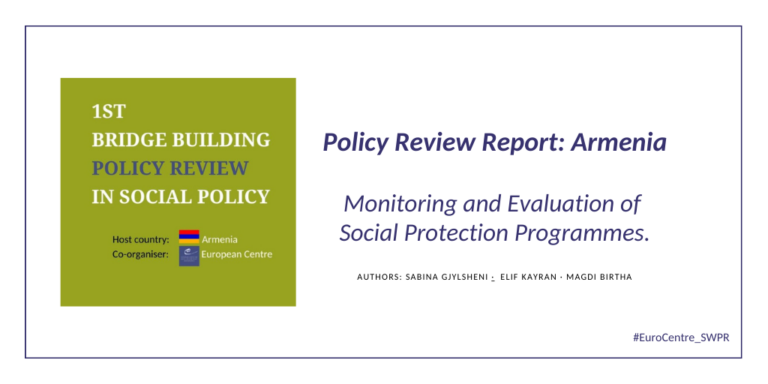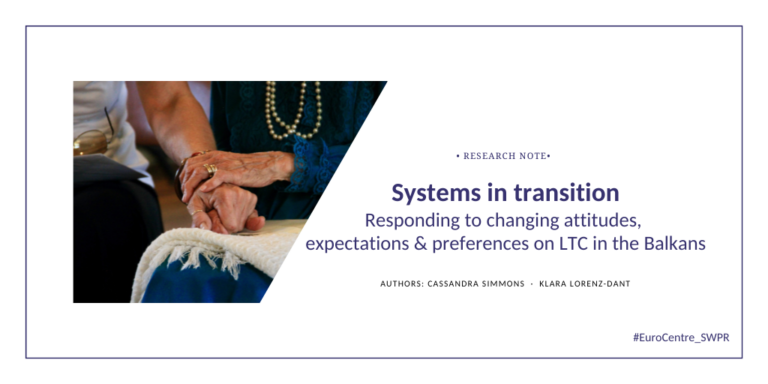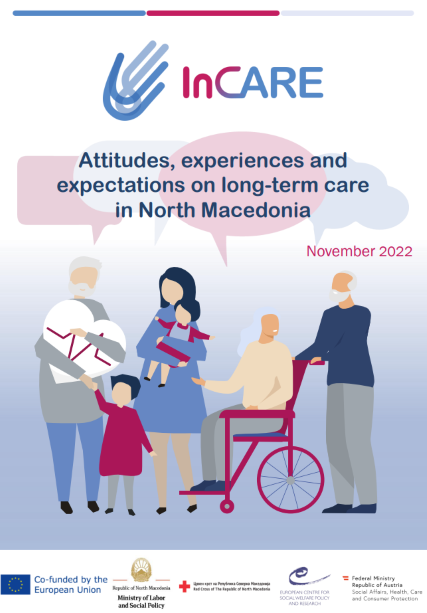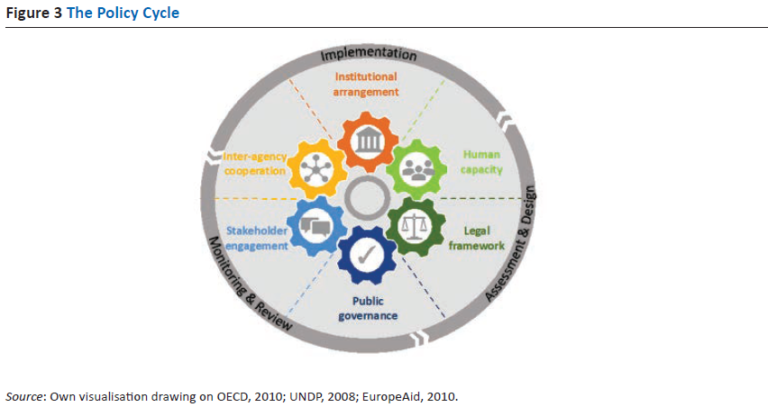Monitoring and evaluation in Armenia
This report summarises insights gained during the policy review and aims at further sharing these with a wider audience.

This report summarises insights gained during the policy review and aims at further sharing these with a wider audience.

The team presents the results of the InCARE survey on attitudes, experiences and expectations on long-term care (LTC) for selected Balkan countries.

InCARE has launched a third national factsheet on long-term care in North Macedonia. The team found that availability and affordability remain major barriers in accessing formal care services in North Macedonia. Many individuals have felt obligated to provide care despite negative impacts on their health and career. There are also strong preferences for formal care…

The latest news on the POW-BRIDGE project can be found in its third and final Newsletter.

Meta-evaluation is an “evaluation of evaluations” to improve future evaluation work. As a highly relevant topic for professionals working in social policy, the third module of the virtual Bridge-Building Summer School of Evaluation in Social Policies (August 25-27, 2021) was about meta-evaluation and evaluation standards in social policy.

In this first InCARE newsletter, the team gathered a series of short articles illustrating the many developments since the project was kicked-off in November 2020.
In the frame of the POW-BRIDGE, we have conducted eight case studies and published eight country reports on Austria, Hungary, Italy, North Macedonia, Poland, Serbia, Slovakia, and Slovenia. The country reports present how the Posting of Workers Directive interplay with national rules and regulations on social security, health insurance, temporary agency work, and company law….
The European Centre for Social Welfare Policy and Research conducted research on the situation of children at risk of losing the parental care and children that have lost the parental care in Albania, North Macedonia, Armenia, Belarus and Ukraine.
At the beginning of April 2020, when we all have got convinced that the COVID-19 pandemic is likely to disrupt even more the environments in which social service users and social care beneficiaries live, and to have several negative consequences for their well-being and protection, the need for united activities of all social actors became imperative.

The needs assessment provides a review of the capacities of the four candidate countries of the Western Balkans.